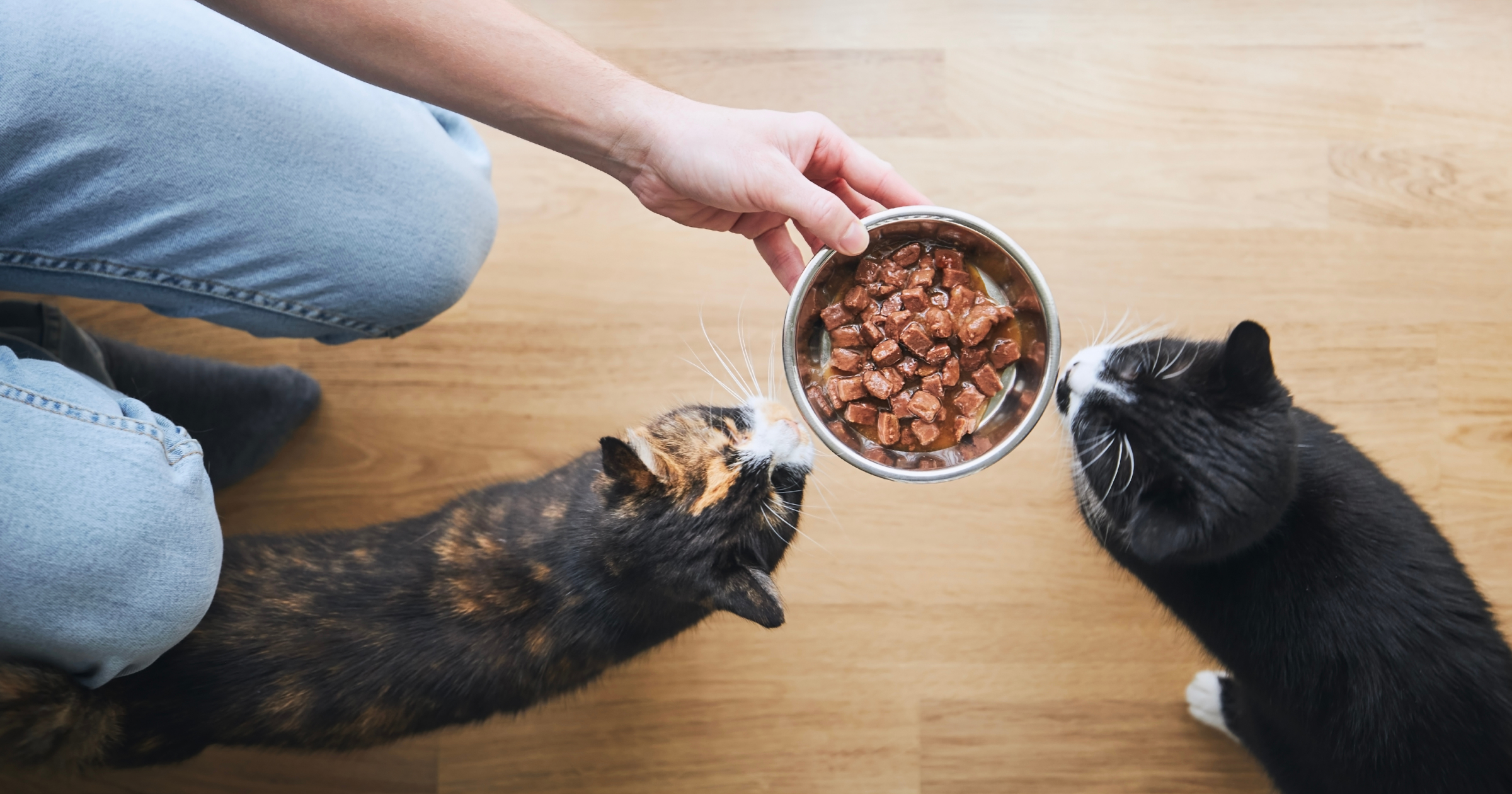Just like humans, cat nutrition begins with the right vitamins and minerals to develop and grow. Cat vitamins are essential for producing enzymes that help the body metabolize food and extract energy from it.
But not every cat is the same or has the same nutritional needs. So, in addition to CBD for cats, what vitamins do cats need to maintain good health and a long life?
Why are vitamins important for cats
Vitamins are important for your cat’s health. And while your cat processes them similarly to how humans process vitamins, they have different nutritional needs.
Here’s why vitamins are important for cats:
1. To stay healthy.
Your cat needs essential vitamins to effectively grow and develop. Cat nutrition starts with a complete and balanced diet with cat food that contains the right nutrients. Vitamins promote:
- Healthy skin, hair, and nails
- Strong bones
- Gut and digestion
- Immunity for adult cats
2. If they are picky or have specific dietary needs.
Feeding your cat a vegetarian diet or have an adult cat who needs extra support in their old age? They may be lacking a source of important vitamins. This is also true for cats who have a particularly sensitive palate.
If your cat prefers one animal protein over another, they might not be getting the nutrients from consuming cat food. This includes cat vitamins or minerals like vitamin B2 or calcium that are necessary for proper growth and development.
3. If they have a vitamin deficiency.
Your cat needs vitamins in small quantities to function the right way. But, if they don’t properly absorb enough vitamins through cat food or supplements, their health could suffer. Vitamin deficiencies can lead to hypovitaminosis, heart disease, and brain aneurysms.
If you’re not sure how to tell if your cat is lacking vitamins, look for the following signs:
- Lack of energy
- Dandruff
- Dull coat
- Dry, brittle nails
- Hair loss
4. To prevent disease.
In addition to health benefits, vitamins boost your cat’s immune system so that they don’t catch colds as easily. Vitamins can also help prevent diseases like feline asthma and diabetes.
Vitamins and minerals cats need
Vitamins are substances that are essential for good health. They provide the energy and nutrients required to sustain normal physiological functions.
Cats need various nutrients from carbohydrates, animal protein, and fat. But, some vitamins aren’t produced within the cat’s body and must be ingested through their cat food.
Vitamin A
Vitamin A is an essential nutrient that helps maintain healthy vision, skin, and bones. It’s also vital for reproduction and cell growth. Great sources of vitamin A include eggs, cheese, and fish oils. However, the best source of vitamin A is beta-carotene found in carrots, spinach, and sweet potatoes.
Amino acids
Amino acids are the building blocks that makeup protein. While amino acids aren’t considered a vitamin, they do need to be obtained through your cat’s diet. And cats require 22 different types of essential amino acids — 11 of which are synthesized in the cat’s body.
B Vitamins
Vitamin B is essential for making red blood cells, which carry oxygen around the body. It’s also important for the health of the nervous system and for your cat to produce antibodies that fight infection.
Vitamin B1 (Thiamine)
Vitamin B1, or thiamine, is a water-soluble vitamin that metabolizes carbohydrates for energy. It’s one of the most important essential cat vitamins. Unfortunately, many commercial cat foods and raw diets don’t contain the right amount to meet your cat’s nutritional requirements.
Vitamin B2 (Riboflavin)
Vitamin B2, or riboflavin, also helps break down carbohydrates as an energy source for your cat. It also breaks down fats, improves oxygen supply, and promotes good skin and coat health.
Vitamin B5 (Pantothenic Acid)
Vitamin B5 is found in animal protein like beef and organ meat like liver. It’s a great anti-stress vitamin and helps your cat metabolize fat, protein, and carbohydrates into energy.
Vitamin B6 (Pyridoxine)
Vitamin B6 or pyridoxine is a necessary nutrient for your cat’s brain function and overall development. It is normally found in protein-rich cat foods like tuna or dairy.
Vitamin B12 (Cobalamin)
Vitamin B12 is an essential vitamin for your cat. Found in animal proteins like meat, liver, and fish — B12 or cobalamin supports your cat’s immune, digestive, and nervous systems.
Biotin (Vitamin H)
Biotin is the hair, skin, and nails vitamin, but it’s also good for treating skin allergies, supporting digestion, and building muscles. Most cat foods contain the right amount of biotin for your cat. But, if your cat eats a raw diet ensure it’s filled with protein and nutrient-dense whole grains.








